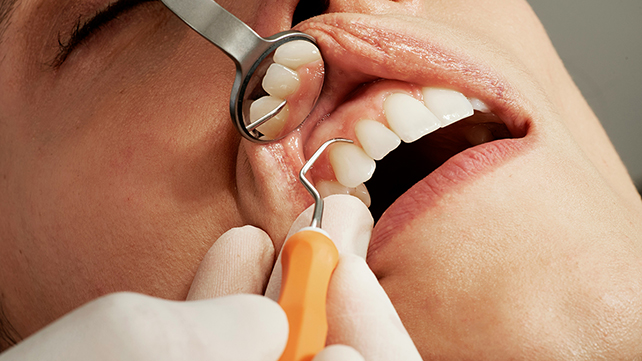Poor health in one part of the body often leads to problems elsewhere. A new study links gum disease with an increased risk of damage to the brain's white matter, which transmits signals around the central nervous system.
These findings aren't conclusive, but they suggest that persistent inflammation in the mouth could be harming the brain as well – and that practicing good oral hygiene may benefit white matter in the brain as well as gums and teeth.
The researchers behind the study, led by a team from the University of South Carolina, were particularly interested in white matter hyperintensities (WMHs). These are key markers of cerebral small vessel disease or CSVD, which affects the brain's blood vessels and increases the chances of a stroke and cognitive decline.
Related: This Popular Diet Seems to Reduce Gum Disease, Scientists Say
"This study shows a link between gum disease and white matter hyperintensities suggesting oral health may play a role in brain health that we are only beginning to understand," says Souvik Sen, vascular neurologist at the University of South Carolina.
The team looked at dental exams and brain scans for 1,143 adult participants, finding that those with gum disease, or periodontal disease, (800 of the group) had a higher average volume of WMHs: 2.83 percent of total brain volume, compared to 2.52 percent.

After accounting for other factors that can influence these health conditions, the data showed that people with gum disease had a 56 percent greater likelihood of being in the subset of participants showing the most white matter damage.
This doesn't show direct cause and effect, and it's also worth noting that some other markers of CSVD didn't show any relationship with gum disease in this study. Even so, the statistics are suggestive enough to warrant further investigation.
"Gum disease is preventable and treatable," says Sen. "If future studies confirm this link, it could offer a new avenue for reducing cerebral small vessel disease by targeting oral inflammation."
As well as being associated with CSVD, WMHs also often increase with age. Their presence is thought to indicate underlying injuries in the brain, which can have an impact on abilities like balance, memory recall, and reasoning.
How this might be exacerbated by gum disease isn't clear, but there's a growing amount of evidence that chronic inflammation – where the body's immune system goes into harmful overdrive in an attempt to protect itself – can spread between conditions and between parts of the body.
Some of the same researchers have also recently published a study that found an association between both gum diseases and tooth cavities, and having a higher risk of stroke. These links underline just how important oral health is.
Considering that almost half of adults in the US have some form of gum disease, tackling that problem could have knock-on benefits for health more generally. However, the researchers also raise the possibility that shared risk factors for blood vessel health are potentially affecting both gums and brains.
"While more research is needed to understand this relationship, these findings add to growing evidence that keeping your mouth healthy may support a healthier brain," says Sen.
The research has been published in Neurology Open Access.

